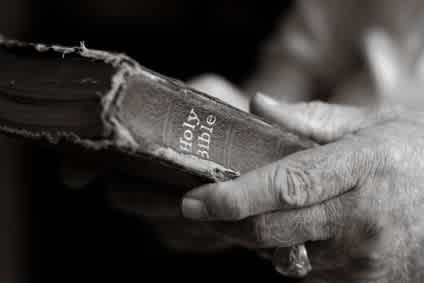The word "canon" is from the ancient world and basically means a rule or standard. It referred to a reed that was used to measure things, much like we use a ruler today. The classic definition of canon in church life is "rule of faith." Over the centuries of church history, many denominations and church bodies have drawn up canons that help to determine belief and practice for their people.

In the process of time, the canon also came to mean a catalog or authoritative list. Canonization tells how the Bible received its acceptance as men recognized the authority of God's inspired writings. It is the process by which God's inspired Word was recognized by men of God and then collected and preserved by the people of God. This subject is as intriguing as it is important because the process by which the books of the Bible were included is an amazing story in itself and one that's filled with drama. But my primary concern as a preacher and teacher of God's Word is the product that we have in our hands today, and how we use it.
You might be reading this and saying, "Tony, is this really a big deal? Why should I care about the canonicity of the Bible anyhow? The Bible is how it's been for hundreds of years." To which I reply, "Absolutely -- it is a very big deal. Canonicity is not just a musty issue from ancient history. American founding father Thomas Jefferson, who was a deist, took a pair of scissors to the gospels and cut out the parts he didn't accept. But we have more recent examples than this.
As our culture continues its shift away from God, more and more of His Word is being edited out, tweaked, or redefined by preachers who claim His name. While they may not come outright and declare a change to God's Word, the avoidance of teaching truth in the face of controversy has left a number of our churches anemic and faltering.
Our nation's ills are not merely the result of corrupt politicians, terrorists, or extremists. Our troubles can be traced directly to ineffective preachers producing ineffective Christians. The tragedy today is not that sinners sin; that's what they're expected to do, since mankind is born in sin and shaped in iniquity (Psalm 51:5; Ephesians 2:1-3). The real tragedy is that the church as a whole has failed to advance God's kingdom and truth in society in order to be a positive influence for good in our nation and in our world.
In order to position America in a place to experience both revival and renewal, we as preachers must commit to teaching the entire canon. We must effectively disciple those within our influence to live all of life under the comprehensive truth of God. When we do that, we will not only change our churches and our communities but we will change our entire nation.